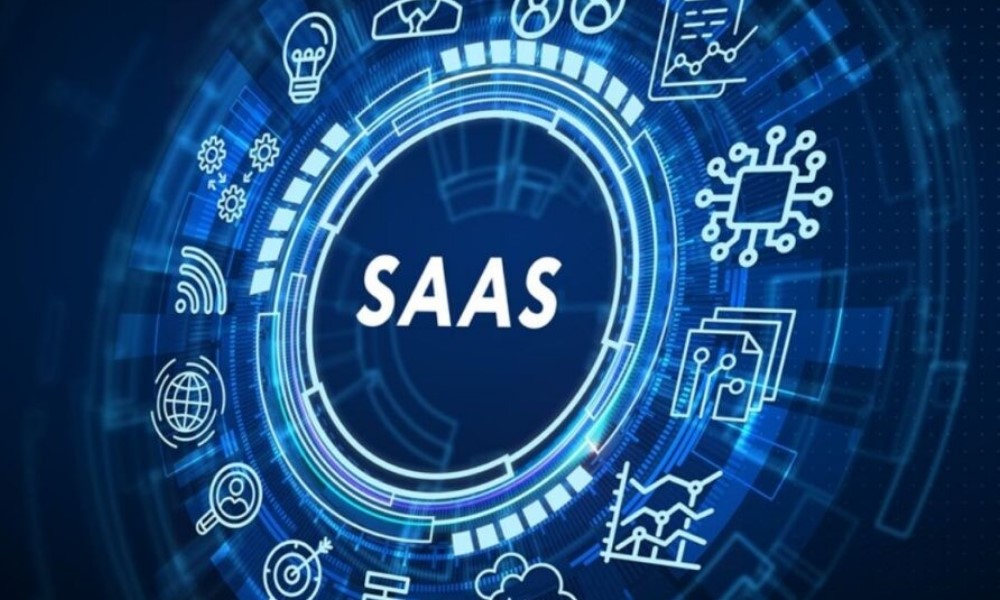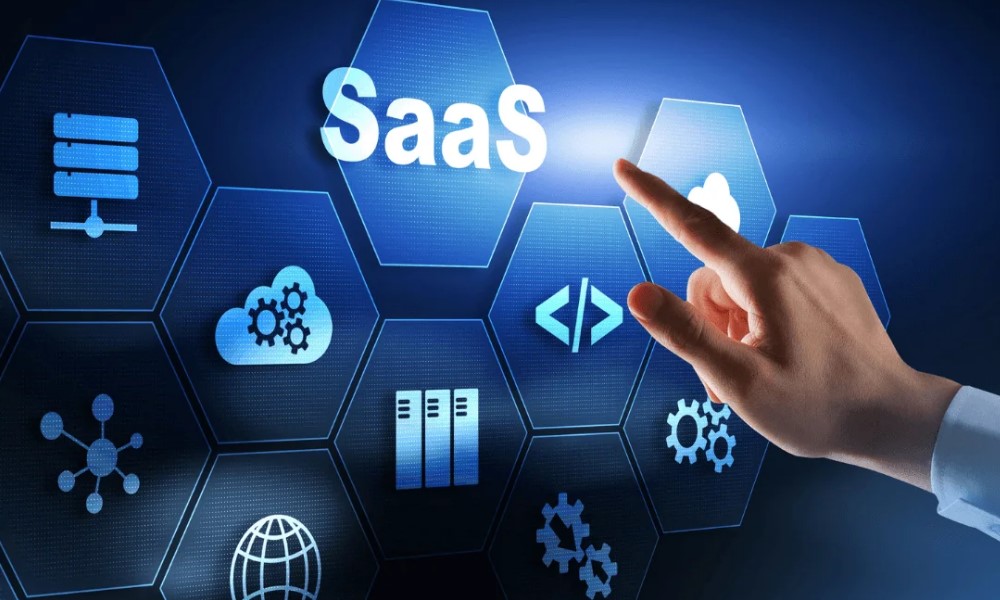Mastering SaaS Marketing: Proven Strategies for 2024 Success
SaaS marketing, which stands for Software as a Service marketing, revolves around promoting cloud-based software products that customers access via subscriptions. Unlike traditional software, which requires users to install and manage software locally, SaaS products are hosted in the cloud and typically offer monthly or annual subscription models. This structure makes SaaS marketing unique and requires specific strategies to reach potential customers, retain existing ones, and demonstrate long-term value.
Types of SaaS Marketing

SaaS marketing encompasses various strategies and approaches tailored to promote Software as a Service products. As the SaaS landscape evolves, so do the marketing techniques employed by companies to attract and retain customers. Here are the primary types of SaaS marketing:
1. Inbound Marketing
Inbound marketing focuses on attracting customers through valuable content and experiences rather than traditional advertising. This approach includes creating blog posts, ebooks, webinars, and tutorials that address potential customers’ pain points. By offering educational resources, SaaS companies can establish themselves as thought leaders in their industry, driving organic traffic to their websites and generating leads.
2. Content Marketing
Content marketing is an integral part of inbound marketing but deserves its own mention. It involves creating and distributing relevant content to engage target audiences. For SaaS companies, this might include how-to guides, case studies, white papers, and infographics that illustrate the benefits of their software. This strategy not only helps in attracting potential customers but also aids in nurturing existing ones by providing ongoing value.
3. Email Marketing
Email marketing is a highly effective tool for SaaS marketing, particularly for nurturing leads and retaining customers. SaaS companies can use email campaigns to share product updates, educational content, and personalized offers. Automated email sequences can help onboard new users, guide them through the features of the software, and re-engage those who may have lapsed in usage.
4. Search Engine Optimization (SEO)
SEO plays a critical role in SaaS marketing by improving a company’s visibility on search engines. By optimizing website content for relevant keywords and phrases, SaaS businesses can increase their chances of appearing in search results when potential customers are looking for solutions. A strong SEO strategy includes keyword research, on-page optimization, and building backlinks to enhance domain authority.
5. Social Media Marketing
Social media platforms provide SaaS companies with opportunities to engage with their audience, promote content, and drive traffic to their websites. By sharing valuable content, user testimonials, and industry news, SaaS marketers can build brand awareness and community engagement. Additionally, paid social media ads can target specific demographics to attract new customers.
6. Pay-Per-Click Advertising (PPC)
PPC advertising is another effective strategy in SaaS marketing, allowing companies to bid on keywords and display ads to targeted audiences. This approach can drive immediate traffic to a website, and when used effectively, it can lead to high conversion rates. SaaS businesses often use platforms like Google Ads and social media ads to reach potential customers actively searching for solutions.
Key Features of SaaS Marketing in 2024

In 2024, SaaS marketing continues to evolve, driven by advancements in technology, changing consumer behaviors, and the need for companies to adapt to a competitive landscape. The key features of SaaS marketing reflect these trends, focusing on strategies that enhance customer engagement, retention, and growth. Here are some essential features shaping SaaS marketing this year:
1. Customer-Centric Approach
A hallmark of effective SaaS marketing is its customer-centricity. In 2024, understanding customer needs, preferences, and behaviors is more critical than ever. Marketers leverage data analytics and customer feedback to tailor their strategies, ensuring that their messaging resonates with their target audience. This approach helps SaaS companies build strong relationships with customers and fosters loyalty, which is essential in a subscription-based business model.
2. Personalization
Personalization is a powerful feature in SaaS marketing. Companies can now deliver personalized content, product recommendations, and communications based on user behavior and preferences. Advanced algorithms and AI tools enable marketers to segment their audience and create targeted campaigns that speak directly to individual needs. For example, personalized onboarding emails that guide users through features relevant to their specific use cases can significantly enhance user experience and retention.
3. Data-Driven Decision Making
Data is at the core of SaaS marketing strategies. Marketers utilize analytics tools to gather insights on user behavior, campaign performance, and market trends. This data-driven approach allows companies to make informed decisions, optimize marketing campaigns, and allocate resources more effectively. In 2024, the integration of machine learning and AI into analytics tools further enhances this capability, providing predictive insights that can shape future marketing strategies.
4. Content Marketing and Education
Content marketing remains a vital feature of SaaS marketing in 2024. SaaS companies create informative and engaging content that addresses the pain points of their target audience. This content can take various forms, including blog posts, webinars, ebooks, and video tutorials. Educational content not only helps attract potential customers but also positions the company as an industry authority. By providing valuable information, SaaS marketers can build trust and credibility with their audience.
5. Integrated Marketing Automation
Marketing automation tools have become indispensable for SaaS marketers. These platforms allow companies to automate repetitive tasks, such as email campaigns, social media postings, and lead scoring. In 2024, integration between various marketing tools is crucial. Marketers can streamline workflows by connecting their CRM, email marketing, and analytics platforms, ensuring a cohesive strategy that improves efficiency and enhances the customer journey.
6. Freemium and Free Trial Models
Many SaaS companies utilize freemium or free trial models to attract new users. This approach allows potential customers to experience the software without a financial commitment. In 2024, optimizing the trial experience is essential. SaaS marketers focus on creating a seamless onboarding process, providing users with the necessary resources to understand and utilize the product fully. Successful trial experiences lead to higher conversion rates and increased customer satisfaction.
7. Emphasis on Customer Retention
Given the subscription nature of SaaS products, customer retention is a top priority. In 2024, SaaS marketing strategies prioritize nurturing existing customers through continuous engagement. This includes regular check-ins, personalized updates about new features, and providing excellent customer support. By investing in customer success initiatives, SaaS companies can minimize churn and encourage upsells, increasing the lifetime value of their customers.
8. Community Building and User Engagement
Building a strong community around a SaaS product enhances user engagement and loyalty. In 2024, marketers leverage online forums, social media groups, and user events to foster community interaction. These platforms allow users to share experiences, provide feedback, and connect with other users, creating a sense of belonging. Active community engagement can lead to valuable insights and user-generated content that further promotes the product.
Top SaaS Marketing Tools to Elevate Your Strategy

Selecting the right tools is essential for a strong SaaS marketing strategy. Here, we explore three leading tools that can help SaaS companies generate leads, nurture customer relationships, and analyze marketing performance. Each tool provides distinct features to support different marketing needs, helping companies find the best fit for their goals.
1. HubSpot Marketing Hub
HubSpot Marketing Hub is a comprehensive marketing platform that offers an array of tools for content management, lead nurturing, customer segmentation, and analytics. HubSpot is widely recognized for its user-friendly interface and flexibility, making it a popular choice for SaaS companies of all sizes.
- Features: HubSpot’s features include email marketing, automation workflows, social media management, and a powerful CRM integration. It also provides tools for A/B testing and SEO optimization.
- Use Cases: HubSpot is ideal for SaaS businesses looking to streamline their inbound marketing efforts, generate quality leads, and maintain detailed customer profiles.
- Pros: User-friendly, robust customer support, scalable to growing business needs.
- Cons: Can become costly as you add more advanced features, limited customization in some areas.
- Price: Starting from $50/month for basic plans, with customizable plans for larger businesses.
Button: Get HubSpot Marketing Hub
2. Salesforce Pardot
Salesforce Pardot is a B2B marketing automation solution designed specifically for SaaS companies targeting other businesses. Pardot integrates seamlessly with Salesforce CRM, allowing companies to unify their marketing and sales efforts in one platform. It’s particularly suitable for companies with longer, complex sales cycles that require personalized and ongoing engagement with prospects.
- Features: Key features include lead scoring, CRM integration, email marketing, and comprehensive analytics. Pardot also offers dynamic content personalization and account-based marketing capabilities.
- Use Cases: Salesforce Pardot is a powerful tool for SaaS companies that rely on high-touch, data-driven marketing, where long-term nurturing is crucial for conversion.
- Pros: Excellent CRM integration, strong analytics, ideal for data-focused companies.
- Cons: High learning curve, premium pricing.
- Price: Plans start at $1,250/month.
Button: Explore Salesforce Pardot
3. Marketo by Adobe
Marketo is a sophisticated marketing automation tool tailored to larger SaaS companies or those with highly segmented customer bases. It offers advanced features for lead nurturing, campaign management, and account-based marketing (ABM), making it a great fit for SaaS businesses looking to scale their marketing efforts with detailed personalization.
- Features: Marketo includes comprehensive lead nurturing capabilities, in-depth analytics, and tools for building and managing account-based marketing strategies.
- Use Cases: Marketo is suitable for SaaS companies with complex customer journeys who want to deliver highly personalized experiences across multiple channels.
- Pros: Rich feature set, excellent for ABM and personalization, strong integration with Adobe products.
- Cons: Premium pricing, high learning curve.
- Price: Custom pricing is available upon request.
Button: Get Started with Marketo
Benefits of SaaS Marketing Tools for Businesses
Marketing tools tailored for SaaS can streamline and amplify a company’s efforts to reach and engage customers. Here are some key benefits of using these specialized platforms:
Improve Customer Retention
SaaS marketing tools help companies gain a deeper understanding of their customers through CRM and analytics capabilities. By tracking customer interactions and preferences, businesses can personalize communication, send timely reminders about feature updates, and re-engage customers who might be at risk of leaving. This personalized approach builds loyalty and reduces customer churn.
Boost Marketing Efficiency
Automation is a cornerstone of SaaS marketing tools, allowing companies to handle tasks like email marketing, lead segmentation, and customer follow-ups without manual intervention. This efficiency enables marketing teams to focus on higher-level strategies while ensuring consistent communication with leads and customers.
Gain Actionable Insights
Analytics are integral to SaaS marketing tools, providing data that allows marketers to assess campaign performance and customer behaviors. Platforms like HubSpot, Pardot, and Marketo track metrics such as click-through rates, conversion rates, and customer engagement, giving companies the ability to refine their strategies based on real-time data.
Real-World Use Cases for SaaS Marketing Tools
1. Optimizing Lead Generation
For SaaS companies looking to expand their customer base, tools like HubSpot and Pardot are highly effective for lead generation. These platforms offer content management and email automation capabilities, allowing companies to create, publish, and promote targeted content that resonates with their audience. Additionally, CRM integration ensures that every lead is nurtured from the initial interaction to conversion.
2. Enhancing Customer Onboarding
SaaS marketing platforms can automate customer onboarding by sending out a series of educational emails and guiding new users through the product’s features. For example, a company using Salesforce Pardot could set up workflows to deliver a sequence of onboarding emails based on user behavior, helping customers quickly learn the value of the product.
3. Scaling Multi-Channel Campaigns
Marketo by Adobe is ideal for SaaS companies needing to run campaigns across multiple channels, such as email, social media, and web. Its ABM and campaign management tools allow marketers to reach customers with a consistent message on their preferred platforms, ensuring a cohesive experience that builds brand awareness and loyalty.
How to Choose the Right SaaS Marketing Tool
When selecting a SaaS marketing platform, consider factors such as the company’s size, budget, and specific needs. Smaller businesses may benefit from HubSpot’s scalable pricing and user-friendly design, while larger organizations might prefer Marketo’s advanced personalization features.
It’s wise to evaluate the total cost, including onboarding and customization fees, as well as potential training resources. Many tools, such as HubSpot, offer free trials, allowing teams to explore functionality before committing.
Button: Start HubSpot Free Trial
Button: Explore Pardot Options
Frequently Asked Questions
Q1: What makes SaaS marketing different from other types of marketing?
A: SaaS marketing focuses on acquiring and retaining customers through subscription-based models. It emphasizes continuous engagement, product education, and customer success to build loyalty and reduce churn.
Q2: How can small SaaS businesses benefit from HubSpot?
A: HubSpot’s flexible pricing and ease of use make it an excellent choice for small SaaS businesses. Its automation and CRM integration allow teams to manage inbound marketing and lead nurturing effectively, even with limited resources.
Q3: Is it worth investing in a premium SaaS marketing tool like Marketo?
A: For large SaaS businesses needing advanced personalization and ABM capabilities, Marketo offers features that can justify the investment. Companies with high customer volumes and complex marketing needs may benefit significantly from its robust functionalities.